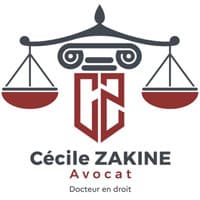News
Article
An update on the CIVI regime: its autonomy in the context of victim compensation
Based on the judgment of the Second Civil Chamber of the Court of Cassation of 04 July 2019 (Appeal no.: 18-13853)
Article 706-3 of the Code of Criminal Procedure establishes a compensation scheme for victims of crime.
The Commission d'indemnisation des victimes d'infraction, more commonly known as the CIVI, allows a victim of the commission of an offence to be compensated if the damage cannot be made good by the perpetrator.
The CIVI compensates for both personal and material damage.
When the claim is filed with the CIVI, an amicable phase begins during which the claim is processed by the Guarantee Fund, which has 2 months from the receipt of your claim to make an offer of compensation.
This offer must indicate the amount of compensation offered.
The victim then has 2 months to accept or refuse the offer.
If the latter accepts the offer, the money will be paid within one month.
If it refuses, it can make a new offer to the president of the CIVI who is free to refuse without having to provide any justification.
If no offer is renewed or if the victim again refuses the new offer, the amicable phase ends.
Thus, if the amicable phase fails, the case is investigated by the CIVI, which makes a decision on the amount of compensation requested by the victim
If the compensation is actually awarded and the victim accepts the decision, the Guarantee Fund is responsible for paying the compensation.
If not, the victim may appeal against the CIVI's decision within one month of being notified of the decision.
Her parents then brought an action before the Paris Administrative Court to hold the Assistance publique-Hôpitaux de Paris (AP-HP) liable and to rule on their claim for compensation.
The AP-HP appealed against the judgment of the Administrative Court, and the Paris Administrative Court of Appeal ruled that the hospital was liable and ordered compensation for the damage caused. damage undergone.
This is how by request filed on June 8, 2013, the parents of the newborn, MZ, contacted a CIVI in order to order a medical assessment of their child and to obtain the payment of provisional compensation.
The Court of Appeal, hearing the case after it had been referred to the CIVI, noted that the Fonds de garantie des victimes des actes de terrorisme et d'autres infractions (Guarantee Fund for Victims of Acts of Terrorism and Other Offences) had not disputed that the child had been the victim of acts that were in the nature of a material offence, but held that claims relating to items of damage that had been fully compensated by the administrative courts were inadmissible before the CIVI.
In so ruling, the judges disregarded the scope of the powers of the CIVI, which institutes an autonomous compensation system for victims of offences, in accordance with its own rules, thus allowing the commission to set the amount of compensation awarded according to the elements of the case, without being bound by the decision of the court previously seized.




